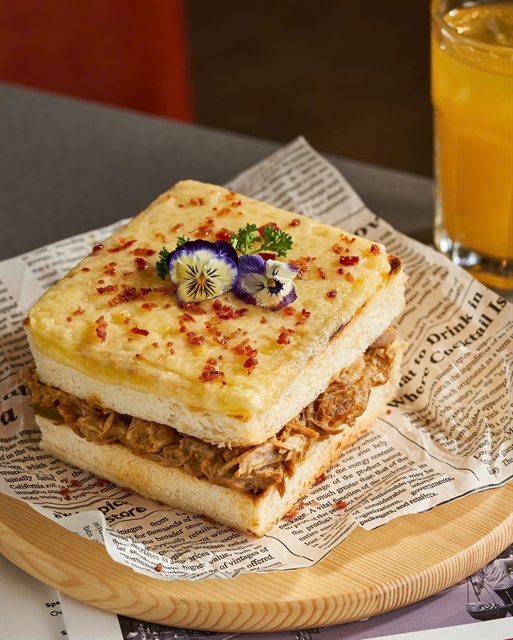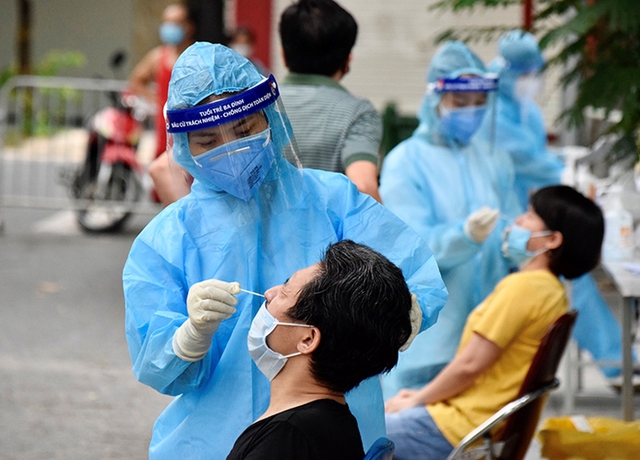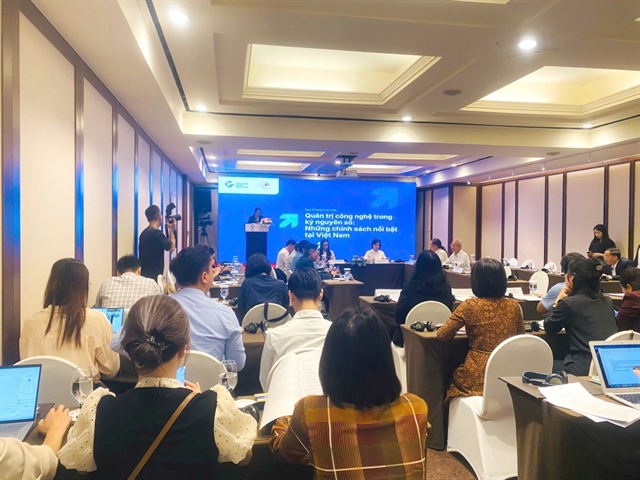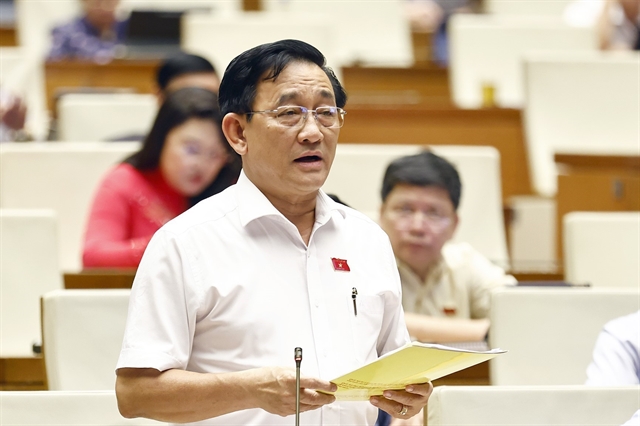 Op-Ed
Op-Ed
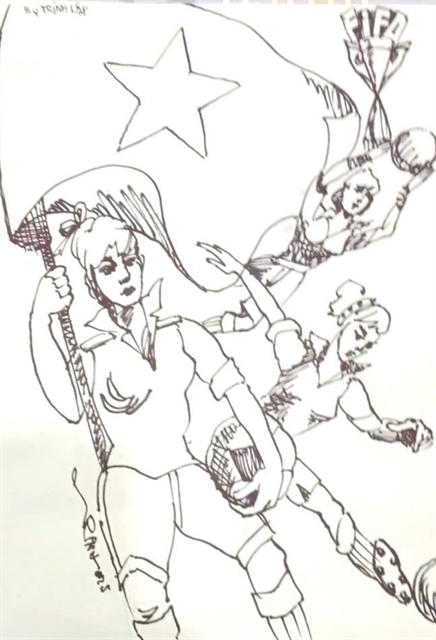
Alcohol consumption can harm the drinker, but what’s worse is when it harms an innocent. On August 27, 2017, Hoàng Văn Thuận, 39, went from work to his friend’s house in Nghệ An Province to drink. Getting home after wards, drunk, Thuận raped his own daughter, who was just 14 years old.
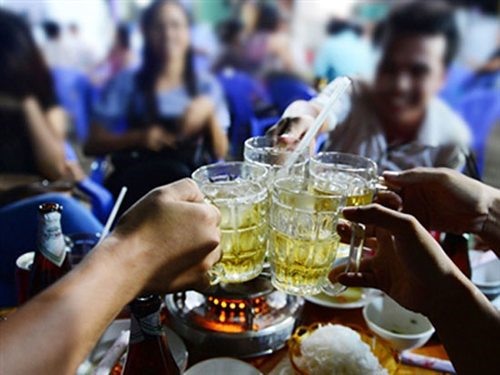 |
Alcohol consumption can harm the drinker, but what’s worse is when it harms an innocent.
On August 27, 2017, Hoàng Văn Thuận, 39, went from work to his friend’s house in Nghệ An Province to drink. Getting home afterwards, drunk, Thuận raped his own daughter, who was just 14 years old.
Thuận was sentenced to 13 years in jail. But the little girl’s pain will last a lifetime.
Just a few days ago in Hà Nội, Nguyễn Tuấn Dũng, 33, was drink driving and caused a series of traffic accidents, leaving 10 injured in the capital city.
These incidents will go on and on if nothing changes.
In a letter delivered to Prime Minister Nguyễn Xuân Phúc recently, World Health Organisation (WHO) experts said high consumption of alcohol in Việt Nam was imposing a heavy burden on the country, which why the organisation expressed its strong support for a draft law on preventing adverse impacts of alcohol consumption that will be reviewed by lawmakers this October.
The draft law, however, was not welcomed by many National Assembly (NA) deputies, lawyers or beverage producers, who said it was too strict.
According to the draft, all advertisements for alcoholic beverages containing 15 per cent or more alcohol by volume would be banned. Meanwhile, advertisements for drinks containing less than 15 per cent alcohol would be banned from means of transportation, transport sites, outdoor billboards and websites — except for business websites.
In addition, organisations and businesses in the industry would not be allowed to fund cultural, artistic, healthcare, education, sports, or entertainment events. They would also be prohibited from sponsoring activities with their products or displaying their brands on mass media.
Additionally, the draft law would limit the time alcoholic products can be sold.
NA deputy Trần Quang Chiểu, member of the Budgetary and Financial Committee, said this regulation is unreasonable because “If the draft law is passed, many cultural, sports and tourism events funded by businesses will be seriously affected, perhaps even scrapped altogether.”
Meanwhile, Nguyễn Văn Việt, chairman of the Việt Nam Beer-Alcohol-Beverage Association said limiting the time for selling alcohol and beer may affect tourism.
Some beverage and alcohol producers protested the strict regulations, saying they would be unfair to an industry that contributed VNĐ50 trillion (US$2.2 billion) to the State budget.
But what these alcohol advocates were trying to show is just part of the picture. The cost of drinking far exceeds its economic value.
Vietnamese people drank more than 3.4 billion litres of beer and another 342 million litres of spirits last year – a 40 per cent increase from 2010 – putting the country in the top 10 global consumers of alcohol.
But alcohol can be a killer. Alcohol can kill slowly, as it gradually contributes to diseases like cirrhosis of the liver and cancer. Harmful drinking is also a major risk factor for cardiovascular diseases.
Up to 10 per cent of men aged from 50 to 69 in Việt Nam died of liver cancer caused by alcohol, three times higher than world’s average rate.
Alcohol can kill quickly, sometimes instantly, when it contributes to traffic crashes, injuries, violence and suicide.
As many as 40 per cent of traffic accidents in Việt Nam are linked to excessive drinking, according to the WHO. Some 4,800 people die in accidents involving drink driving every year out of a total of 12,000 fatalities.
When alcohol producers boast about its contribution of VNĐ50 trillion to the State budget, they must have forgotten the societal costs of drinking, which amounted to VNĐ65 trillion, according to the health ministry.
Alcohol advocates protect their industry from strict regulations by saying drinking small amounts of alcohol does no harm and it would be unfair to try to regulate alcohol abuse by causing harm to the whole industry.
But it’s a myth.
A study by the American Institute for Cancer Research in 2017 suggested that even the equivalent of a small glass of wine per day is linked to an increased breast cancer risk.
Another study in the BMJ, a world leading medical journal, last year also found that moderate drinking may harm mental health.
“The myth of a safe level of drinking is a powerful claim,” said Professor David Nutt, a leading British drugs scientist teaching at Imperial College.
“It is one that many health professionals appear to believe in and that the alcohol industry uses to defend its strategy. However, the claim is wrong and the supporting evidence flawed,” he said.
Effective control measures
On the positive side, research tells us that strong alcohol policies work.
Restrictions on the times when alcohol is available have an impact. In Sydney, late-night assaults declined by nearly 40 per cent when closing hours for alcohol purchase were turned back modestly.
In Diadema, Brazil, a city with one of the highest murder rates in the country, the introduction of restrictions on alcohol availability was followed by a 44 per cent decline in murders.
Research around the world has also suggested that increasing taxes on alcohol could reduce alcohol-related deaths by 35 per cent, fatal traffic crashes by 11 per cent and the rates of sexually transmitted diseases by 6 per cent.
The most effective policies used by many countries include alcohol excise taxes, restrictions on the number of stores that sell alcohol and restrictions on sale hours.
When the Government proposed the draft law on alcohol harm prevention, I was thrilled to see it was making protecting the health of citizens a flagship item on the political agenda. This big threat to health needs political solutions and not just medical or technical ones.
But more needs to be done. With tobacco, we’ve seen strong actions globally and nationally for a long time. Twelve years ago, a judge in the US went as far as ordering the nation’s four largest cigarette makers to make “corrective statements” that they had deceived the public about the dangers of smoking and that they had "marketed and sold their lethal product with zeal, with deception, with a single-minded focus on their financial success, and without regard for the human tragedy or social costs that success exacted”,
But nothing as tough has been witnessed for alcohol - which poses similar threats.
Alcohol plays a pivotal role in Vietnamese culture, but it is important to remember there are more deaths and physical and social problems related to drinking, even at low levels, than any other substance. Telling people about such harms, raising public awareness, along side with strict laws, would probably help.
Improving the environment in which consumers make their choices is a political task, especially when public health interests clash with the interests of powerful economic operators, including the alcohol industry. It is up to community members and policy makers to decide if adding more opportunities for alcohol consumption is ultimately worth the cost.
It will take courage to make a change. — VNS

